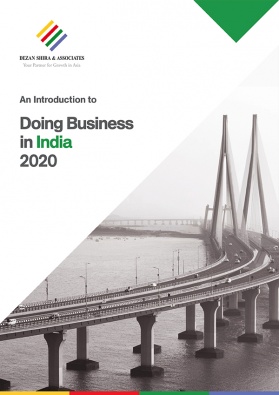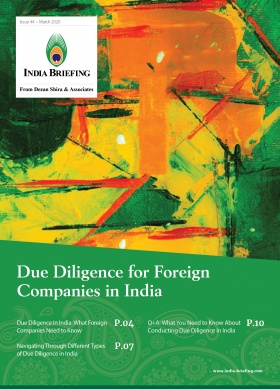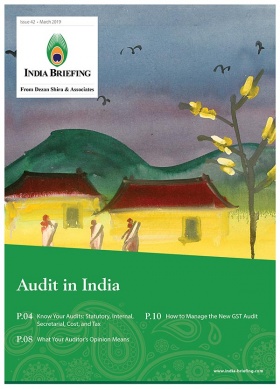Delhi to Deregulate its Restaurant Industry, Establishments to Stay Open 24×7
- Delhi’s state government has promised it will cut down the number of licenses required to operate restaurants and will allow such establishments to stay open 24×7.
- Investment viability in this important linkage service industry has received a much needed boost, which will facilitate greater employment opportunities, tourism potential, and innovation.
This week Delhi’s chief minister Arvind Kejriwal met with members of the National Restaurant Association of India (NRAI) and other restaurant associations to discuss how the industry could be helped out of its financial suffering due to the pandemic. Out of the meeting emerged some major reforms and promises of regulatory easing and an end to the industry’s ‘license permit raj’, which will encourage businesses who have had to invest in precautionary measures due to COVID-19 while also losing revenue or having to shut down operations altogether during the lockdown.
What are the key relief measures for Delhi’s restaurant industry?
The restaurant industry is a major employer in the capital and has experienced a battering in these past few months due to lockdowns to control the pandemic, social distancing and increased health and safety obligations, and a slowdown in demand. To assist in its recovery, the Delhi government has addressed several long-standing demands of the business community.
Key pain points that have sought to be resolved include extending operation hours, easing regulatory compliance, and removing scope for harassment by local authorities due to multiple and overlapping types of licenses and no objection certificates (NOCs) required. Over time, these changes will boost business in the city, help create jobs, and promote tourism and other allied enterprises.
Restaurants in Delhi to stay open round-the-clock
- The Delhi state government has set plans in motion to enable restaurants to operate 24×7. These establishments will have to submit an undertaking to the government that they will be responsible for the health and security of their entire staff.
Rules for serving alcohol
- Restaurants will no longer have to pay extra fees to be able to serve liquor in open areas and balconies of their establishments.
- It has been reported that additional dispensing counters will be allowed at same cost in licensed establishments.
- The requirement to have a designated liquor store has been abolished and stocks can be stored anywhere in the restaurant’s premises.
All types of music to be allowed
- Licenses will permit all types of music in restaurants, including DJs and live bands.
Regulatory clarifications forthcoming on fire safety norms, waste treatment
- The Delhi Pollution Control Committee (DPCC) is expected to issue clarification on allowing wood charcoal in restaurant tandoors.
- The DPCC is also seeking to exempt restaurants holding less than 100 seating capacity to set up a dedicated effluent treatment plant (ETP). Currently, restaurants with more than 36 seats have to install an ETP, which is difficult due to space constraints.
- A technical committee will be formed to reform compliance norms for fire safety for restaurants that are located at old or heritage sites, such as Connaught Place and Khan Market. The objective is to make the rules uniform and clear in their application as well as seek ways to minimize structural changes needed in these areas.
Abolishing unnecessary licenses
- A decision will soon be taken to abolish the need for police licenses for restaurants as these establishments come under the retail sector.
- Also abolished are the need for a tourism license and health and trade licenses that are issued by local municipal/ civic bodies. This is because they overlap with license permits issued by central regulatory bodies, such as the Food Safety and Standards Authority of India (FSSAI). It has been widely reported that the health license issued by civic authorities will be abolished within 10 days.
- Restaurants will be exempted from stamping and verification of weighing scales after discussions with Delhi government officials representing the weights and measures department. The exemption was rationalized as it did not entail consumer facing activity in the restaurant and was used for the internal operation of the enterprise.
License fee payments
- The state excise department will be reviewing the current policy whereby there is an automatic increase of 10 percent in license fees to be paid every year.
- The government has relaxed the last date for when restaurants need to pay their excise – extending the deadline to March 31 instead of February 28.
- Restaurants can now make quarterly license payments without paying interest.
About Us
India Briefing is produced by Dezan Shira & Associates. The firm assists foreign investors throughout Asia from offices across the world, including in Delhi and Mumbai.
- Previous Article Indiens Steuerzahler, FPI, Offshore-Investoren versprachen Erleichterungen: Parlament verabschiedet neuen Gesetzentwurf
- Next Article Delhi will sein Gaststättengewerbe deregulieren, Betriebe sollen 24×7 geöffnet bleiben








